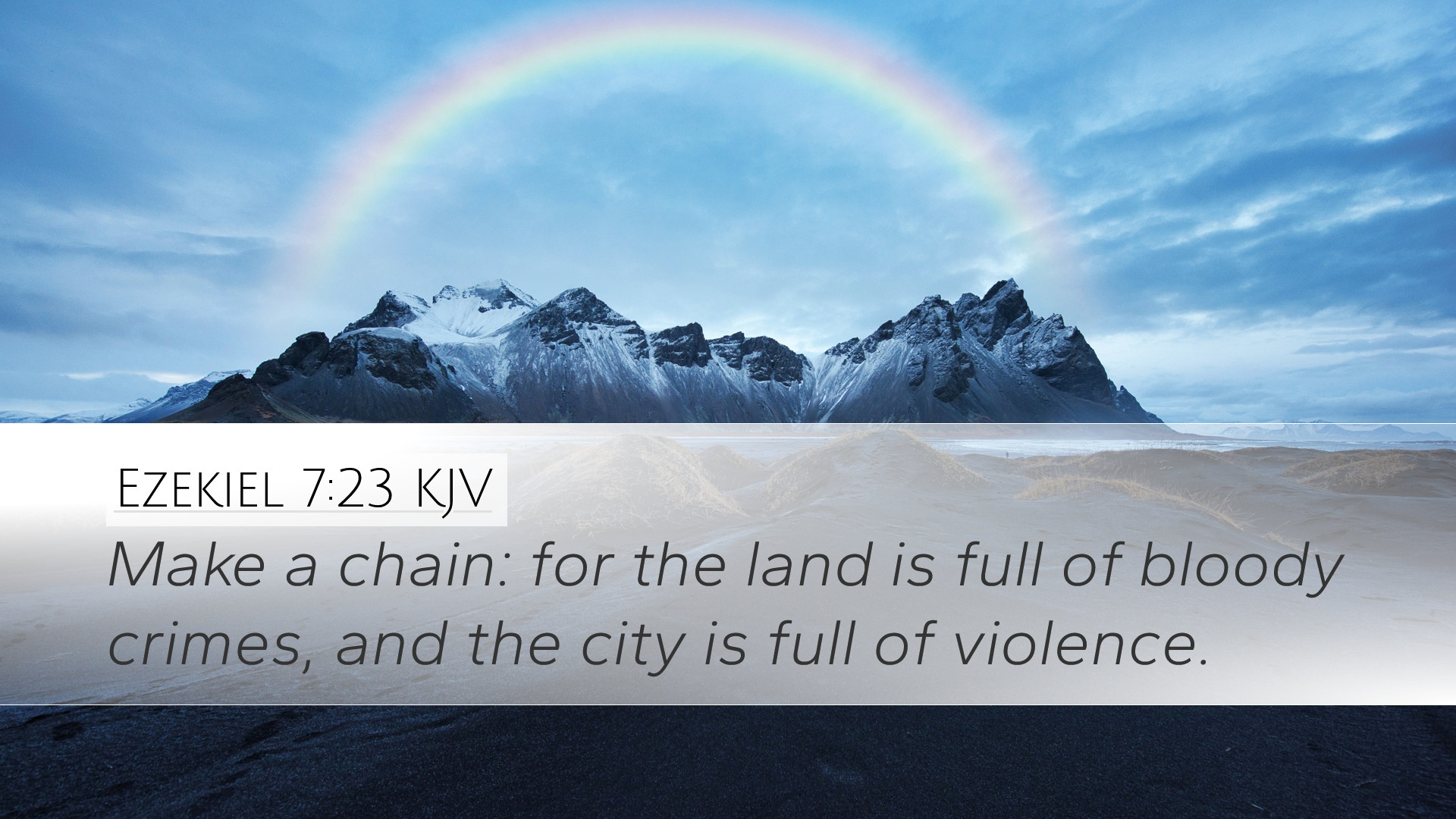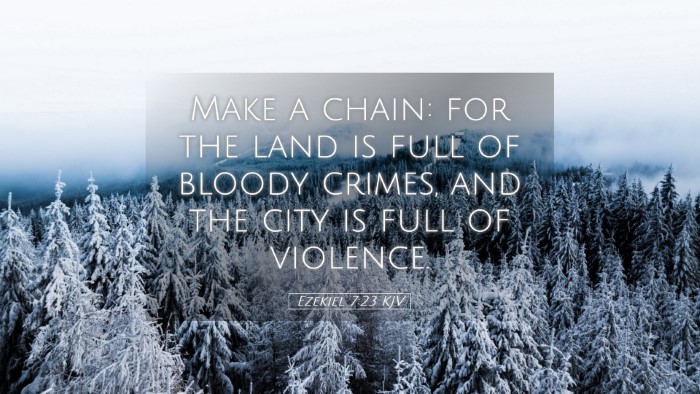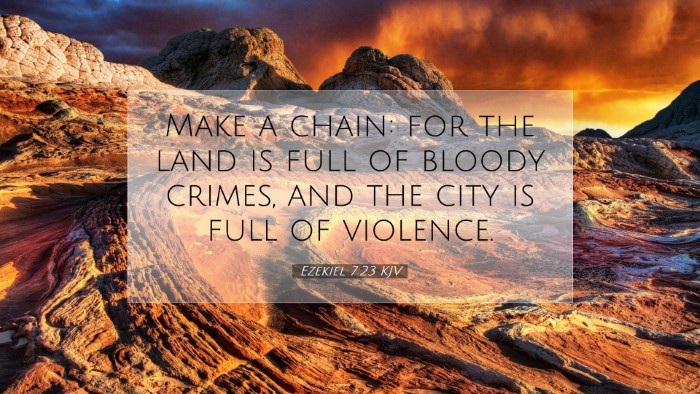Commentary on Ezekiel 7:23
Ezekiel 7:23 (KJV): "Make a chain: for the land is full of bloody crimes, and the city is full of violence."
Contextual Overview
The context of Ezekiel's prophecies is critical for understanding Ezekiel 7:23. The Book of Ezekiel addresses the plight of Israel during their Babylonian exile. This chapter, in particular, highlights the immediacy of the impending judgment of God upon His people due to their rampant sin and rebellion. The "chain" metaphor evokes imagery of captivity and judgment, as well as God's judicial acts against a rebellious nation.
Insights from Public Domain Commentaries
Matthew Henry's Commentary
Matthew Henry emphasizes the severity of sin in the land of Israel, describing how the acts of violence have saturated the city. He suggests that the "chain" signifies a binding and an inescapable fate for the people of Judah due to their gross transgressions. Henry highlights that God's impending judgment is not merely a punishment but also a necessary response to the pervasive corruption that characterizes the society. The metaphor of 'making a chain' encapsulates the idea of inevitable judgment and serves to remind the readers of the seriousness of sin and the need for righteousness.
Albert Barnes' Commentary
Albert Barnes elaborates on the implication of the "chain," interpreting it as representing the impending bondage that will befall the land. He notes that the "bloody crimes" and "violence" in the city are indicators of the spiritual decay that has overtaken Israel. Barnes discusses how this verse points to the lack of justice and morality among the people, where wrongdoing has become a normalized part of life. His analysis provides a somber understanding of the consequences of unrepentant sin—captivity not only in a physical sense but spiritually as well.
Adam Clarke's Commentary
Adam Clarke provides an examination of the language used in Ezekiel 7:23, particularly focusing on the imagery of making a "chain." He posits that the metaphor is indicative of the complete subjugation that would befall the Israelites. Clarke expresses that the widespread violence and bloodshed in the land signal divine displeasure and foretell imminent destruction. In Clarke's interpretation, this passage serves as a stark warning against the corruption of society, revealing that God’s judgment is a response to the people's failure to live righteously and justly.
Theological Implications
The theological implications of Ezekiel 7:23 are profound for understanding God’s nature and His relationship with His people. The chain symbolizes not only God’s judgment but also His holiness, emphasizing that God cannot overlook sin without addressing it. Through the lens of these commentaries, it becomes clear that the justice of God is as paramount as His mercy. For pastors and scholars, this passage illustrates the necessity of accountability and the inevitable consequences of rebellion against God.
- Judgment and Justice: God's judgment serves as a reminder that justice prevails and that sin has repercussions.
- Holiness of God: The need for holiness among God's people is emphasized as a basis for their covenant relationship with Him.
- Call to Repentance: The verse can be interpreted as a call for introspection, challenging leaders and believers to seek righteousness.
Practical Applications
For contemporary applications, Ezekiel 7:23 is a potent reminder of the consequences of societal sin. Pastors can use this text to preach about the importance of social justice, moral integrity, and the dire need for repentance within communities steeped in wrongdoing. For theologians and students, examining the circumstances surrounding this verse can provide a deeper understanding of the socio-political and spiritual issues facing the Church today.
- Understanding Cultural Context: Examining the cultural and historical context of the scriptures to foster deeper insights into modern societal issues.
- Fostering Accountability: Encouraging communities and churches to cultivate environments of accountability and transparency in upholding moral standards.
- Promoting Justice: Striving for social justice by embodying the principles taught through Scripture, reflecting God's heart for the oppressed and marginalized.
Conclusion
Ezekiel 7:23 serves as a stark reminder of the consequences of sin, both corporately and individually. By synthesizing insights from prominent commentators such as Matthew Henry, Albert Barnes, and Adam Clarke, we gain a multifaceted understanding of God's judgment in light of Israel’s disobedience. This verse challenges us to reflect on our spiritual state and urges us towards repentance and a commitment to holiness. As we navigate our contemporary contexts, may we heed the warnings embedded within Scripture, finding hope and restoration through sincere contrition.


